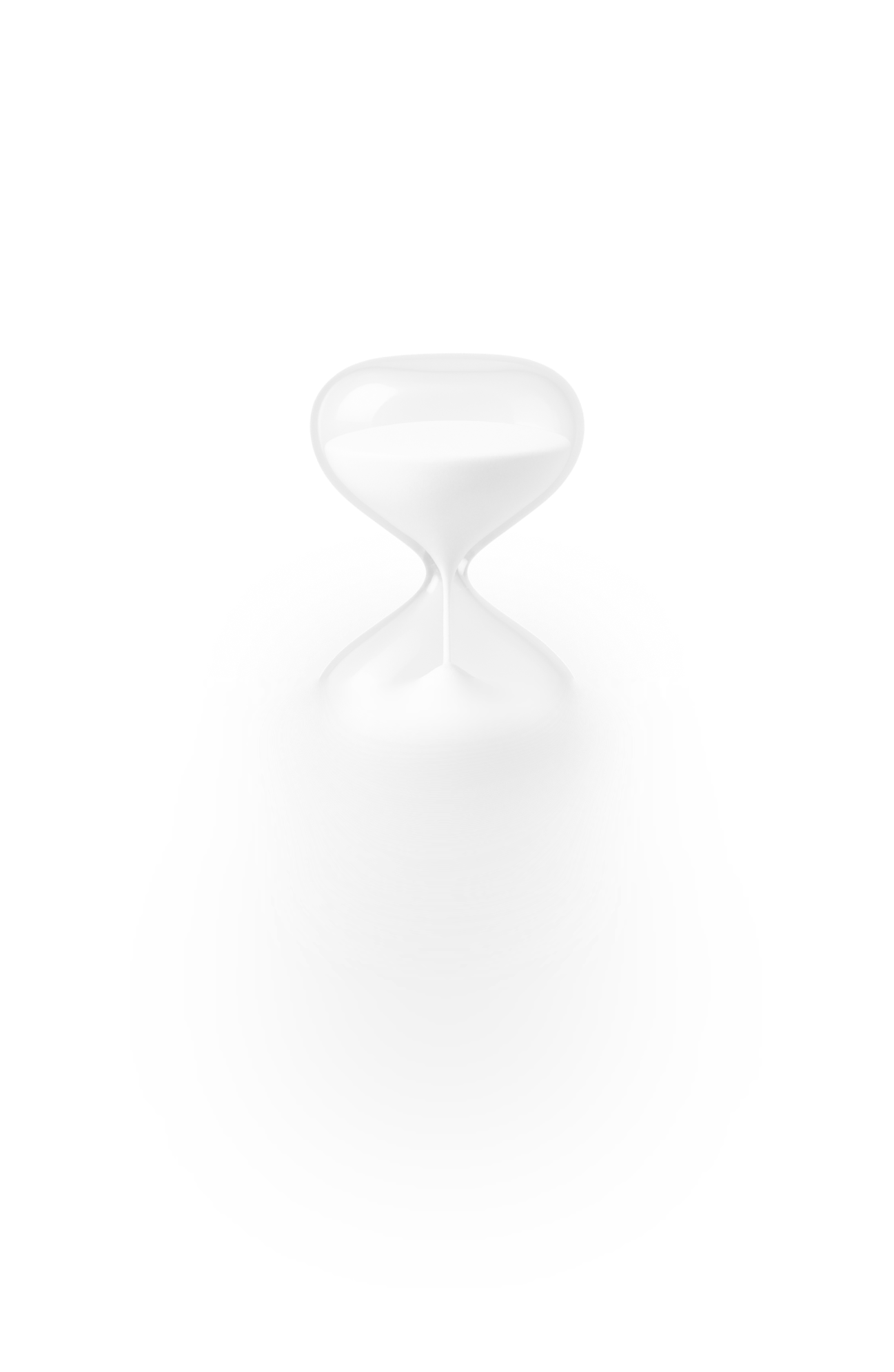6 Best AI Time Tracking Tools
The 6 Best AI Time Tracking Tools: An Objective Comparison
AI Time Tracking allows you to know where your time went and reduce distractions. Do you know how many hours you worked last week? 40? 50? 80? Simply installing an app can help you answer these questions and minimize wasted time.
We've closely reviewed popular tools: Cronus, Rize, RescueTime, Early (Timeular), Memtime, and Toggl.
We also explain the difference between "Automatic" and AI time tracking.
Here's a clear breakdown of their strengths and weaknesses based on real user experiences.
1. c: Smart, Free, and Truly AI-Powered
Cronus distinguishes itself by genuinely leveraging AI to understand your tasks. It uses local OCR and sophisticated AI models to automatically differentiate between productive tasks and distractions—meaning no rigid keyword rules.
It's completely free (affordable pricing planned), has a sleek interface with a mini-timer to help you stay focused and gamify productivity. A mobile app that integrates both desktop and mobile screen time is in development. Instead of clunky reports, Cronus provides AI-driven insights and subtle nudges to help you focus on what matters. Cronus even pulls in your calendar events with AI to log offline time (e.g. meetings or lunch) automatically, or you can add manual entries in one click.
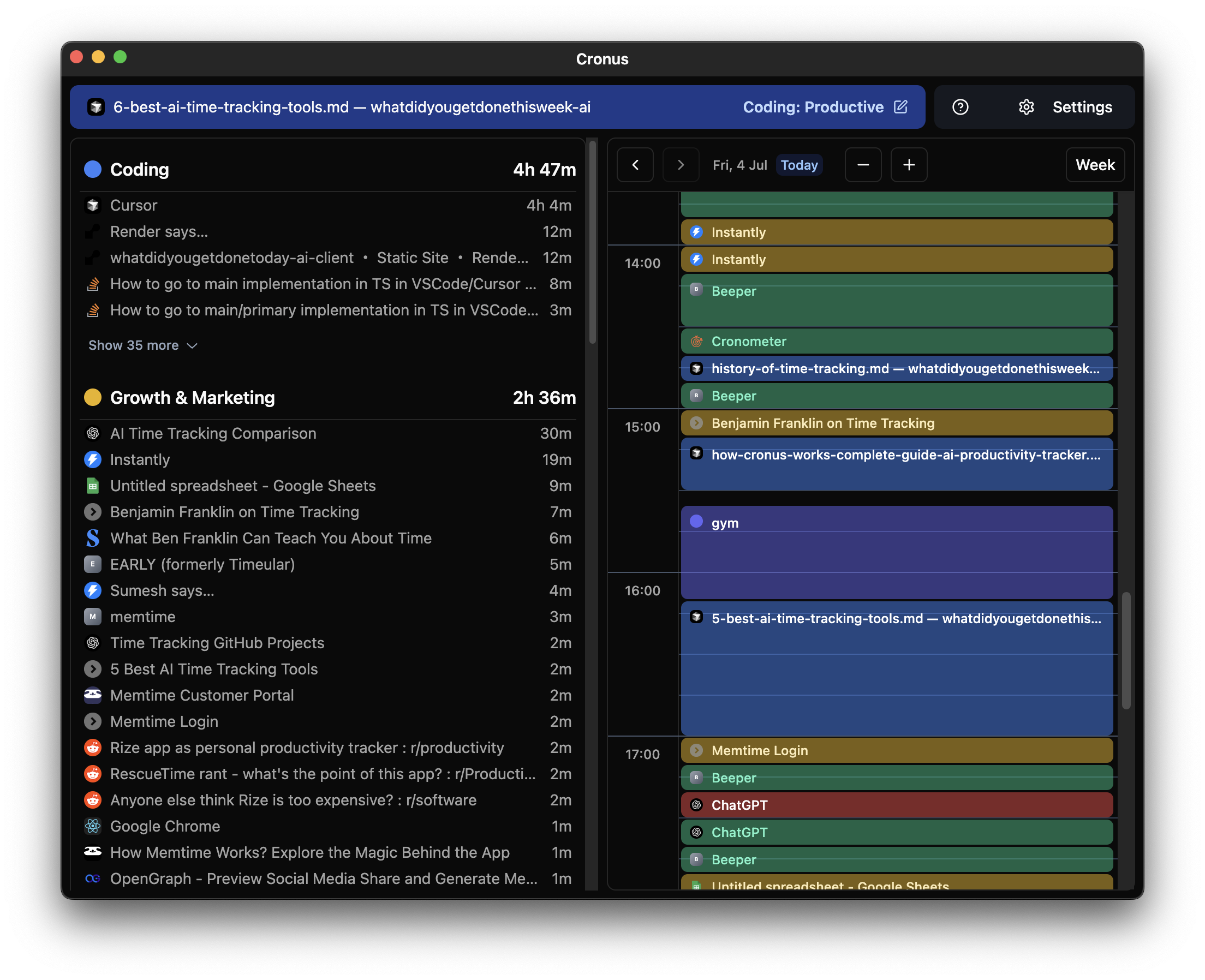
2. Rize: Detailed Tracking with Some Limitations
Rize is known for its visually appealing yet complex interface and features that encourage focus, like a built-in Pomodoro timer. The app will show a popup if you are on a "distracting" website. In our testing, these categorizations were only accurate in 30% of cases.
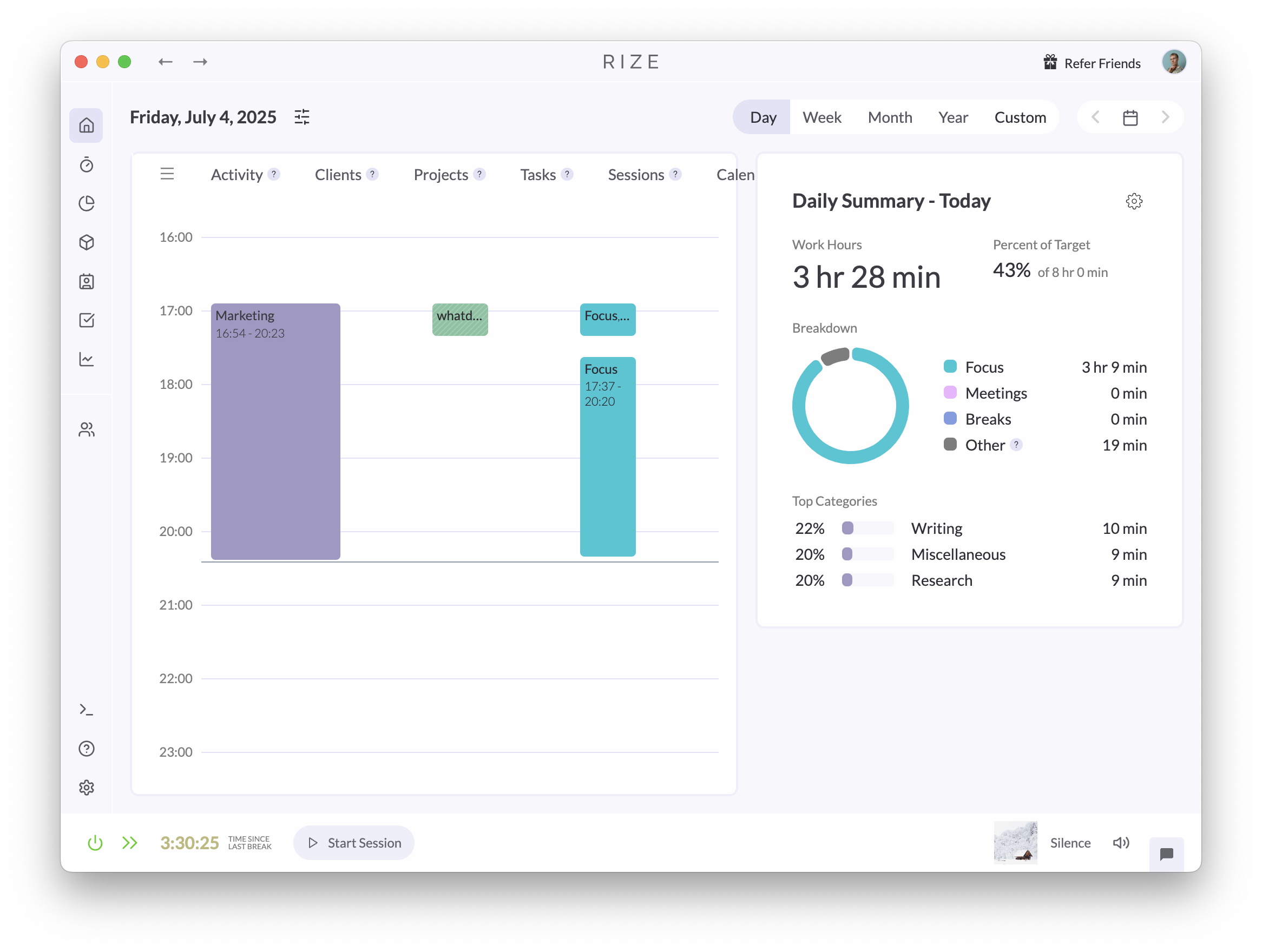
Rize is expensive, starting at $16.99 per month for basic features like categories. It's unclear how the app uses AI, as the categorization is entirely rule-based. The pricing is questionable. If you downgrade from a paid subscription, your historical data is deleted.
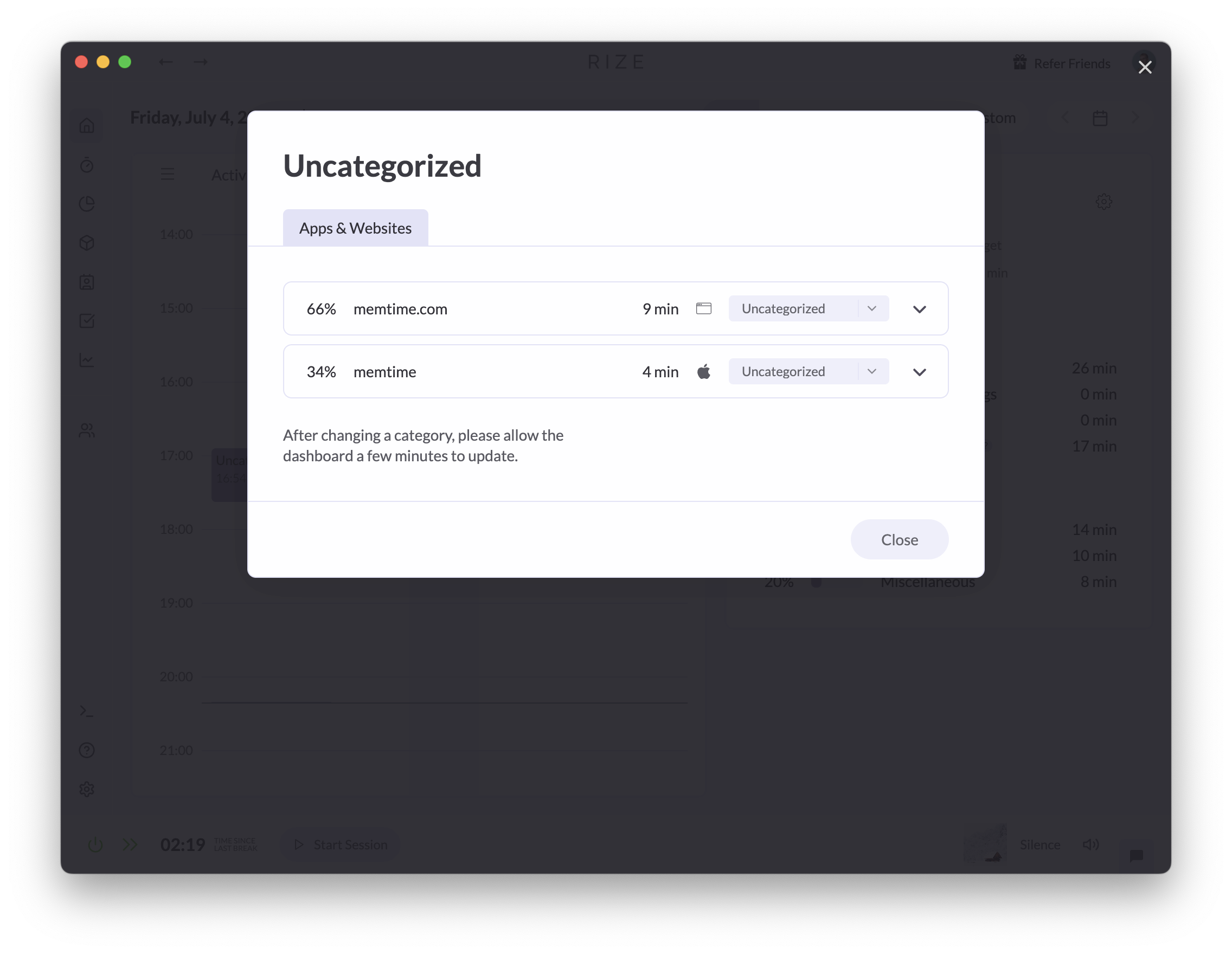
3. RescueTime: Powerful but Dated
Having launched 16 years ago, RescueTime is showing its age. Users frequently describe its interface as outdated and cumbersome. While it offers automatic tracking, users often report frustration due to its inability to distinguish productive tasks clearly^1.
The dashboard is packed with charts and automatic categorization of activities (productive vs distracting), but in practice these reports can be "virtually unusable" to derive insights^1.
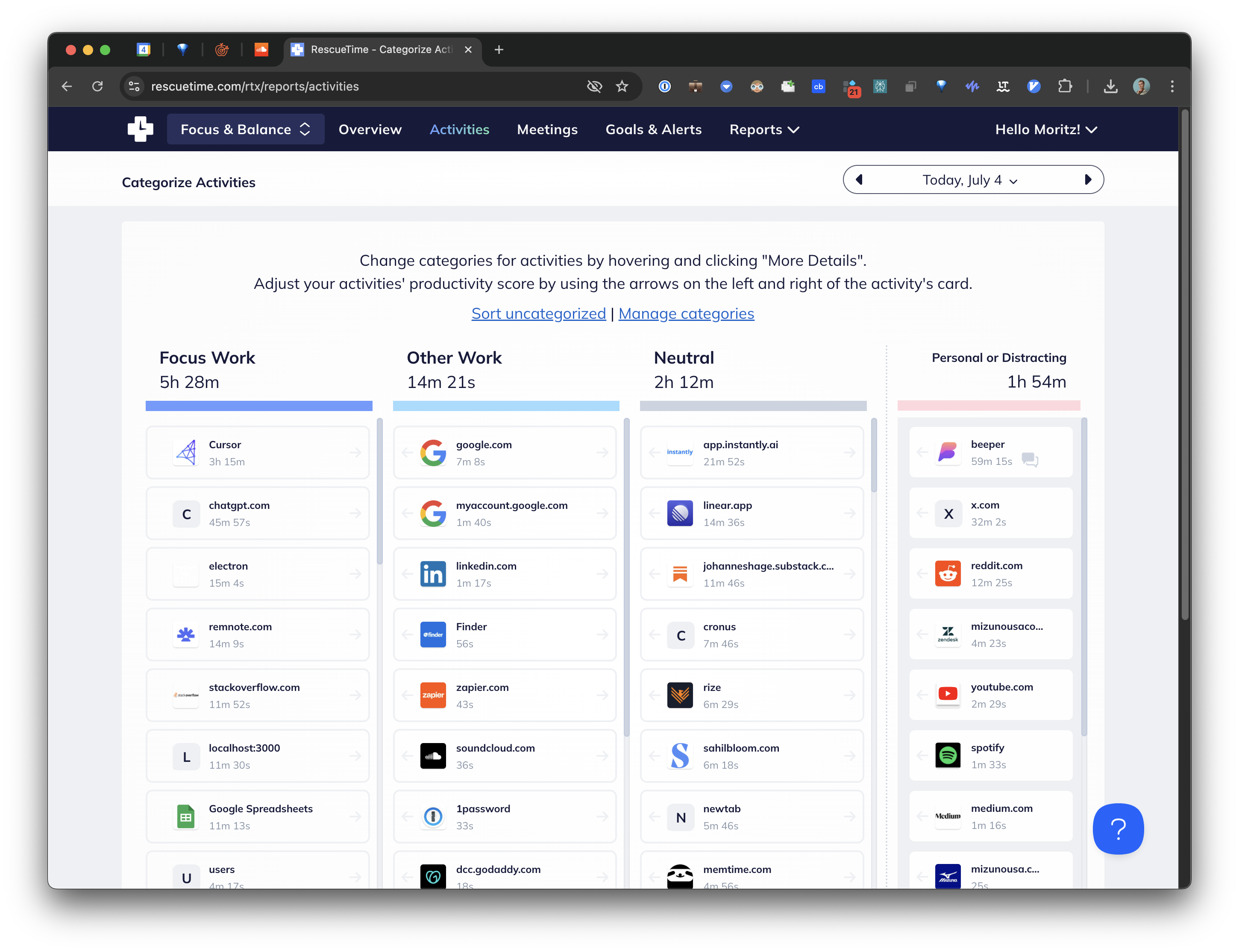
RescueTime has a mobile app, but unfortunately, data from mobile and desktop devices remain siloed, hindering a unified productivity view. It's MacOs app is only a re-packaged version of the mobile app.
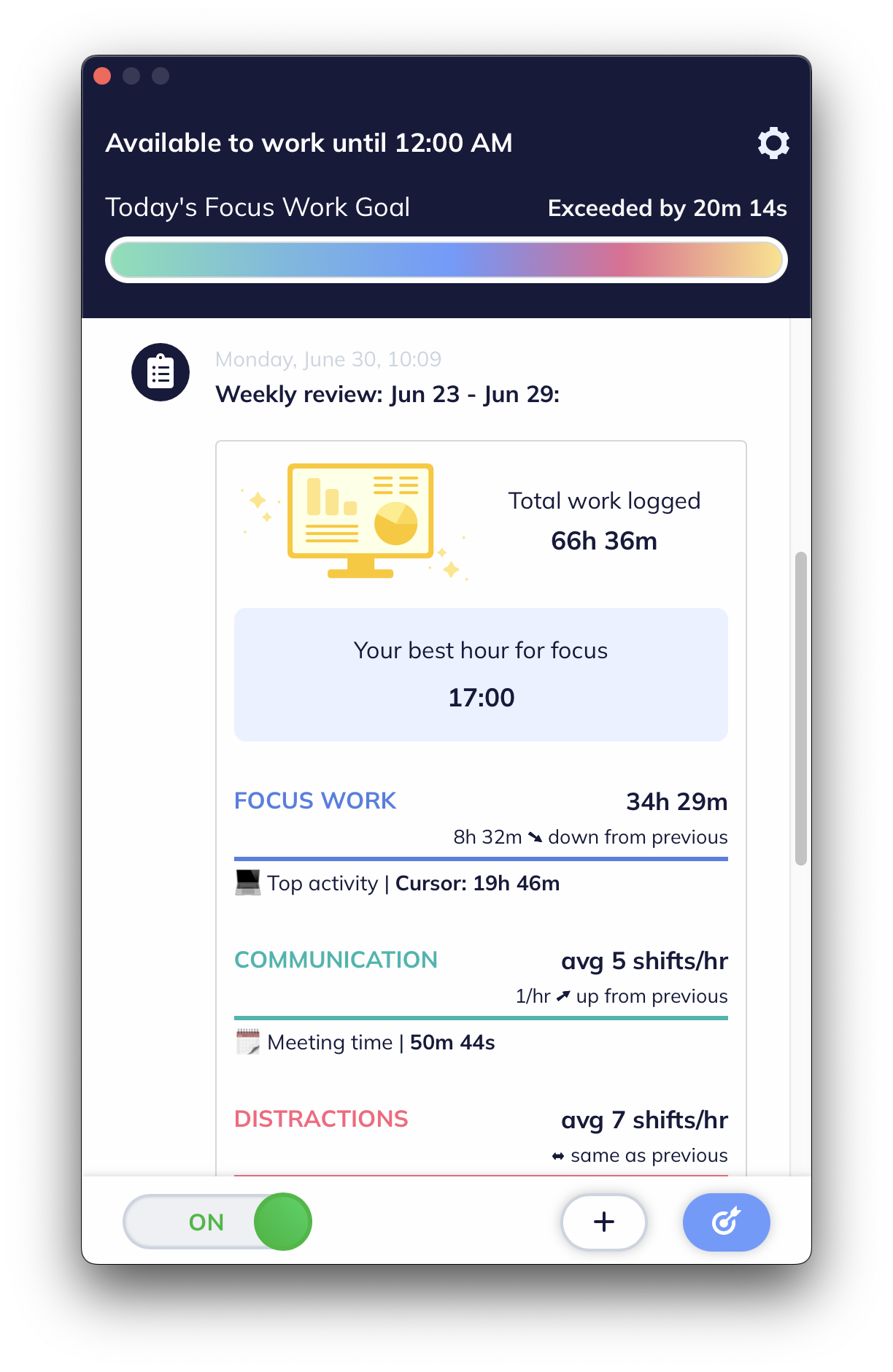
4. Early (Timeular): Semi-Automated and Privacy-Focused
Early offers automatic context tracking but doesn't fully automate the process. Users must manually confirm and categorize tracked activities^2. Early offers a unique 8-sided Bluetooth tracking cube, creating a tangible, game-like interface for those who prefer physical tools over on-screen timers.
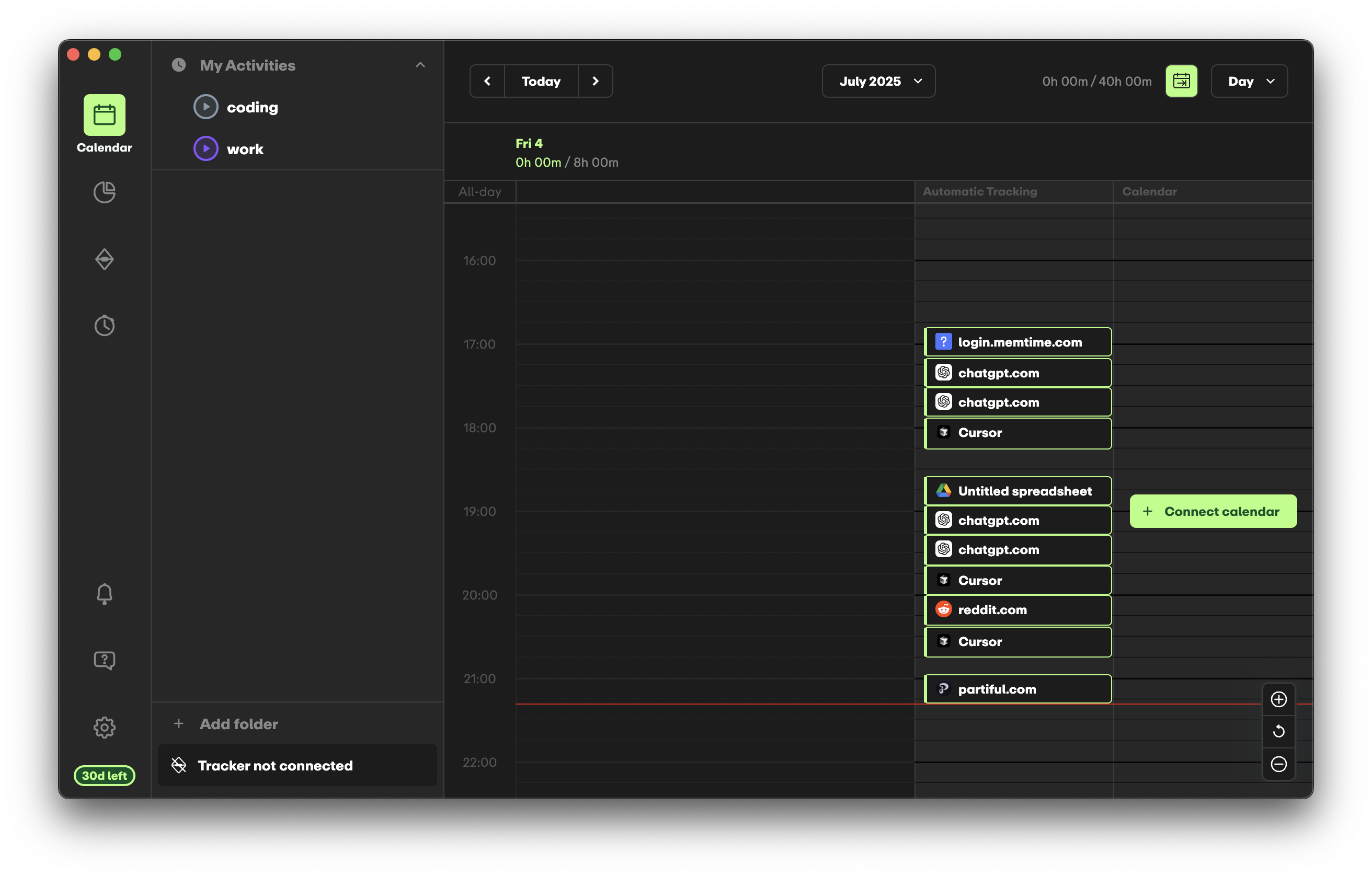
5. Memtime: Complex Setup and Manual Categorization
Memtime advertises automatic time tracking but, in practice, still requires extensive manual categorization of apps and websites. Users report a long and complicated onboarding process. Additionally, there's criticism regarding Memtime's billing practices and aggressive upselling strategies.
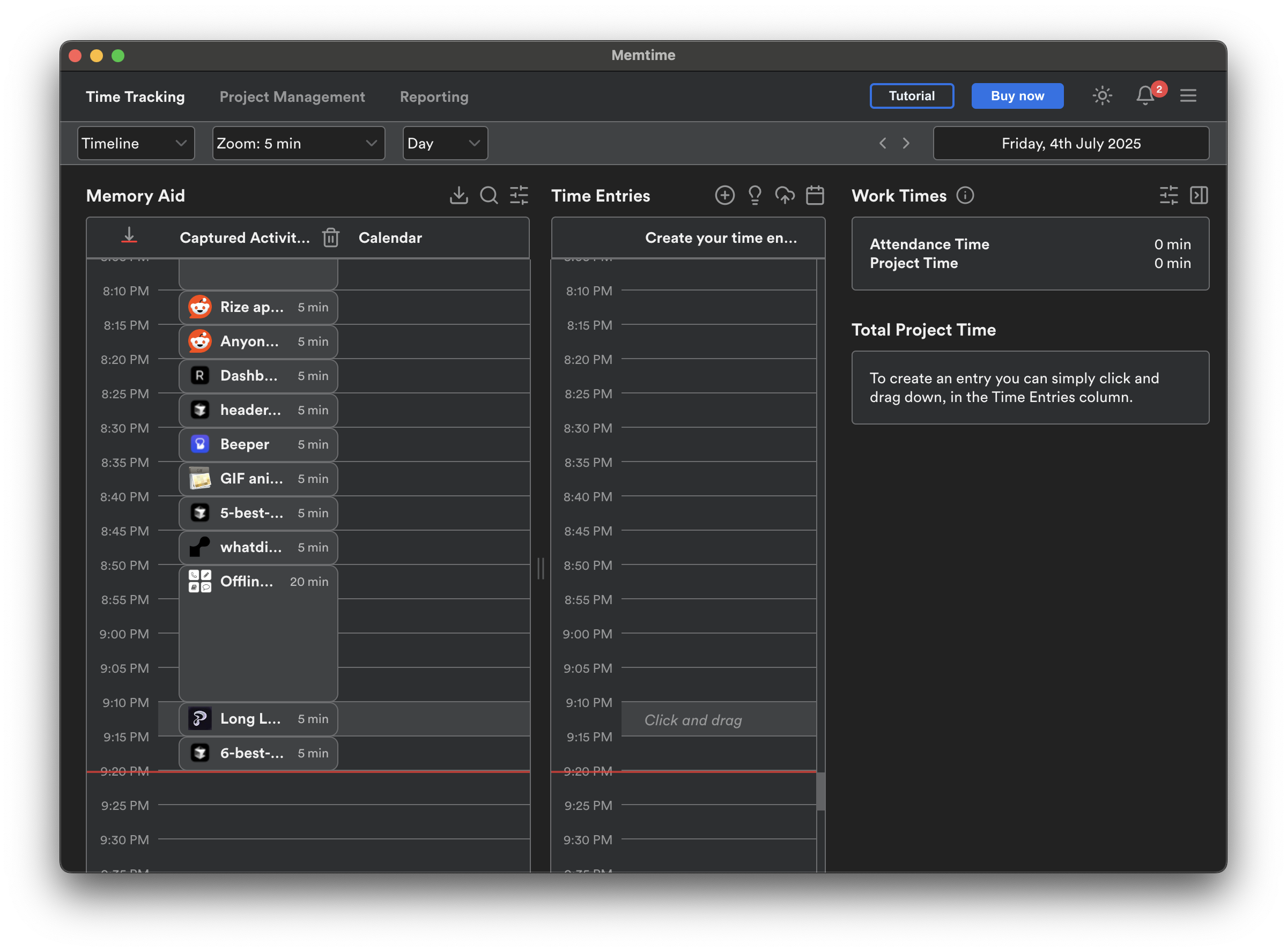
We also found online discussions about concerning billing practices and customer service, with users reporting aggressive tactics like debt collection notices for expired subscriptions plus hefty fees^2.
6. Toggl Tracker: Robust but Fully Manual
Toggl Tracker excels in manual time tracking with robust reporting and billing features. However, it offers no automation or AI-driven insights. It demands constant manual input, and users find it challenging to quickly visualize past activities without detailed interaction with the UI.
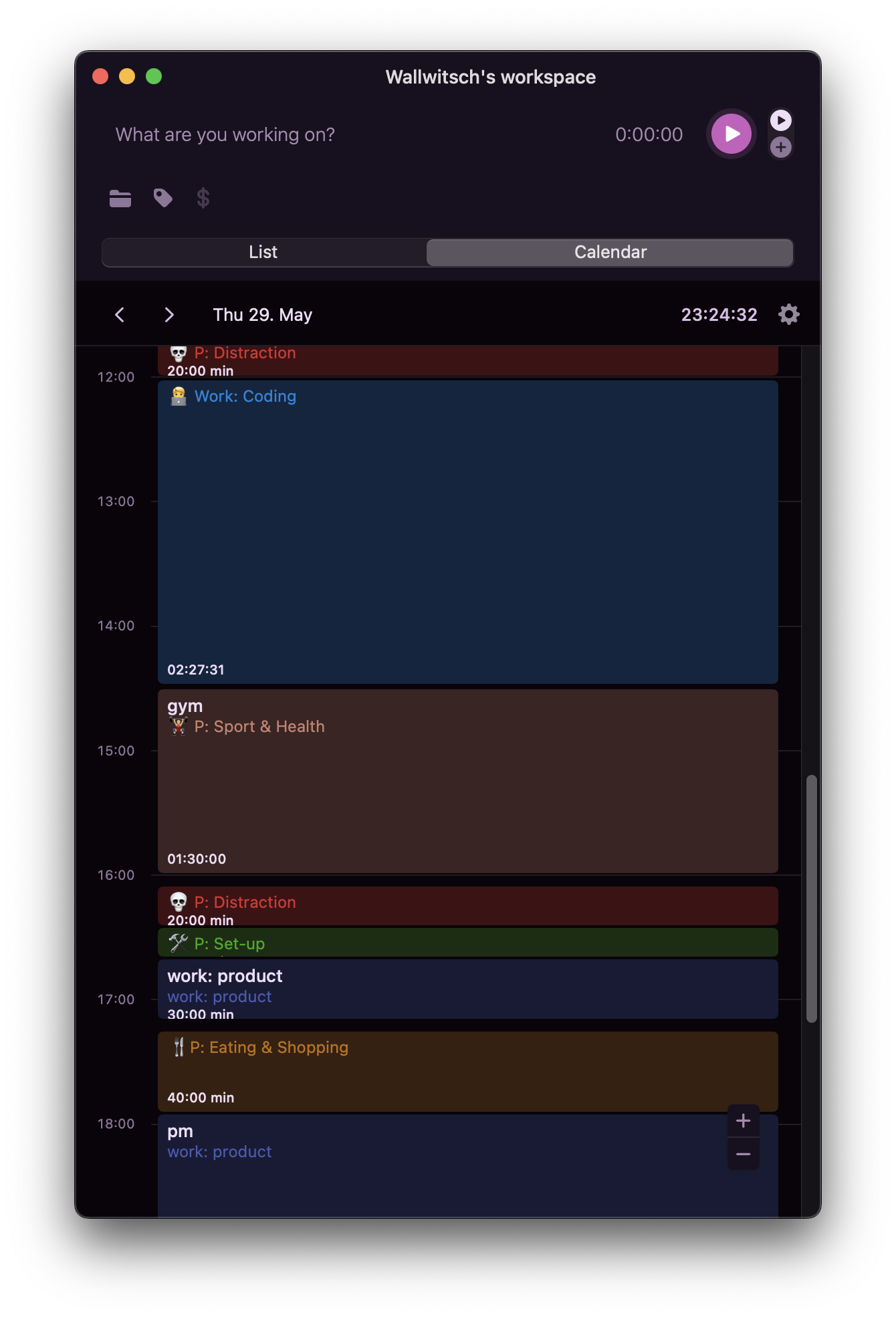
However, they do show the activity-block in the MacOS app that can be used to retroactivily figure out what you were doing when you were not using the app.
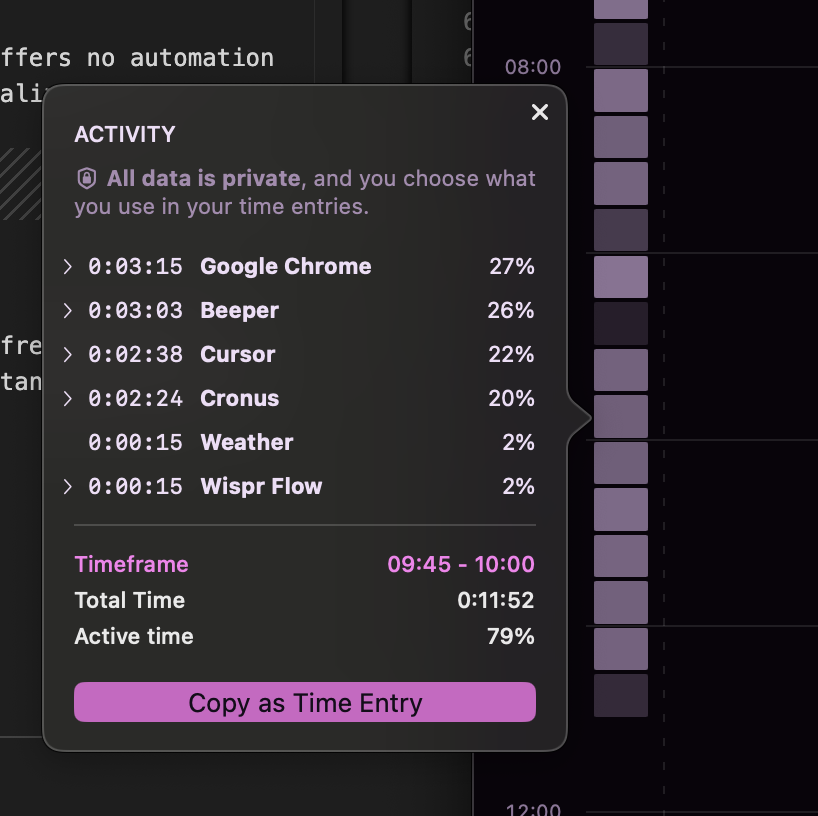
Final Thoughts
When objectively compared, Cronus clearly stands out due to its genuine AI capabilities, ease of use, free availability, and effective integration across devices. If you're seeking a seamless, intelligent solution to understand and enhance your productivity effortlessly, Cronus is your best choice.
